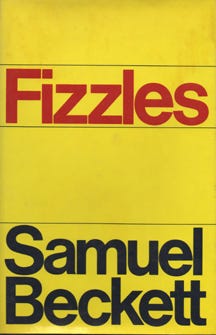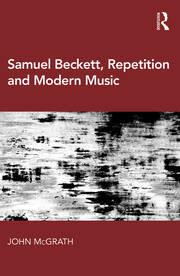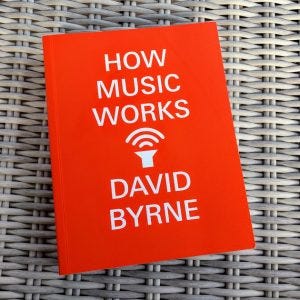You may have noticed that whenever I release a new song (have you heard this one, for example?) I credit myself as follows: “Words & Music by Mark Will.” This is an unsubtle nod to Samuel Beckett’s 1961-1962 radio play Words and Music, which just so happens to be the focus of the latest episode of Guitar & Pen. Friend of show Craig Branch, host of the Can’t Find My Way Home podcast, stopped by the Riverside studio again to help me try to make sense of this specimen of Beckett’s “musicalized fiction” and then apply lessons learned therefrom to the craft of songwriting. During our wide-ranging chat, we discuss, among other things, Schopenhauer’s philosophy of music, Wagner’s concept of the Gesamtkunstwerk, the potential meaning of Beckettian “love and soul music,” the etymology of “lyric” (from lyre, not liar), what exactly constitutes an “earworm,” why the emotional impact of Morton Feldman’s music is “lacking,” the influence of music on James Joyce, the mystery of Beckett’s brother (we know he was a composer at least), the role of the tyrannical editor-author-producer-director in the production of masterpieces, and the compositional importance of dynamics, silence, space, and repetition. Press play above to hear the full convo, which we consider our contribution to the nascent field of “Word and Music Studies,” and remember what is perhaps Beckett’s most important insight:
When you’re in the shit up to your neck, there’s nothing left to do but sing.
Show Notes
Music by Morton Feldman, despite all our disparagement:
What you’re hearing at the beginning of the pod is from a live performance of Barry Guy’s first “Fizzle”:
There’s also a studio version:
I need to read this:
This too:
More Beckett-inspired music:
Words and Music on the stage:
Play with Alan Rickman and Kristin Scott Thomas:
Billie Whitelaw in Not I:
Why Steve Reich is better than Morton Feldman:
Why Arnold Schoenberg is better than Morton Feldman:
Coming soon to G&P:
Macca, we hardly knew ye:
Rhymes with UB40:
Thanks to Idiot 4 for turning us on to Derek Bailey:
The Police explain “semantic fluidity”:
















